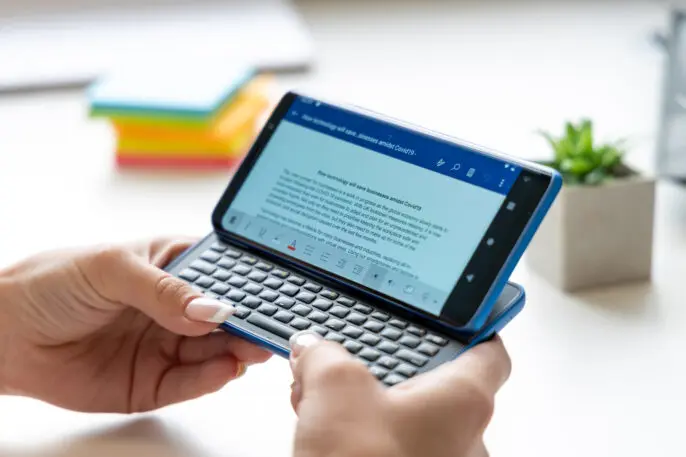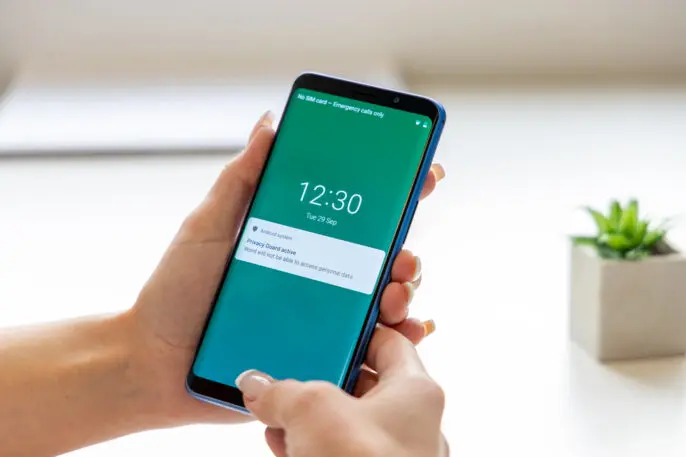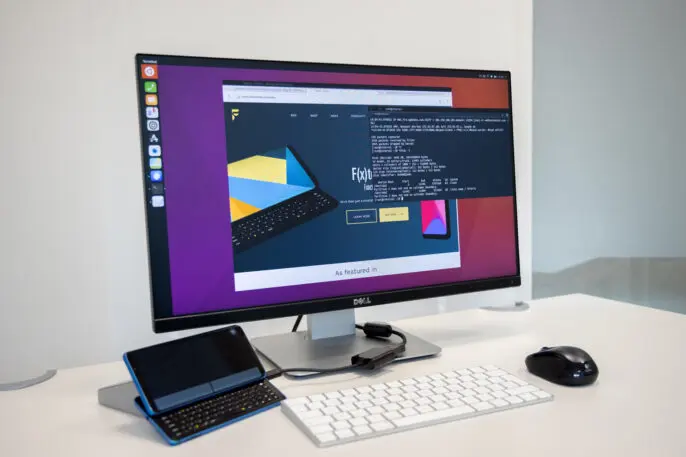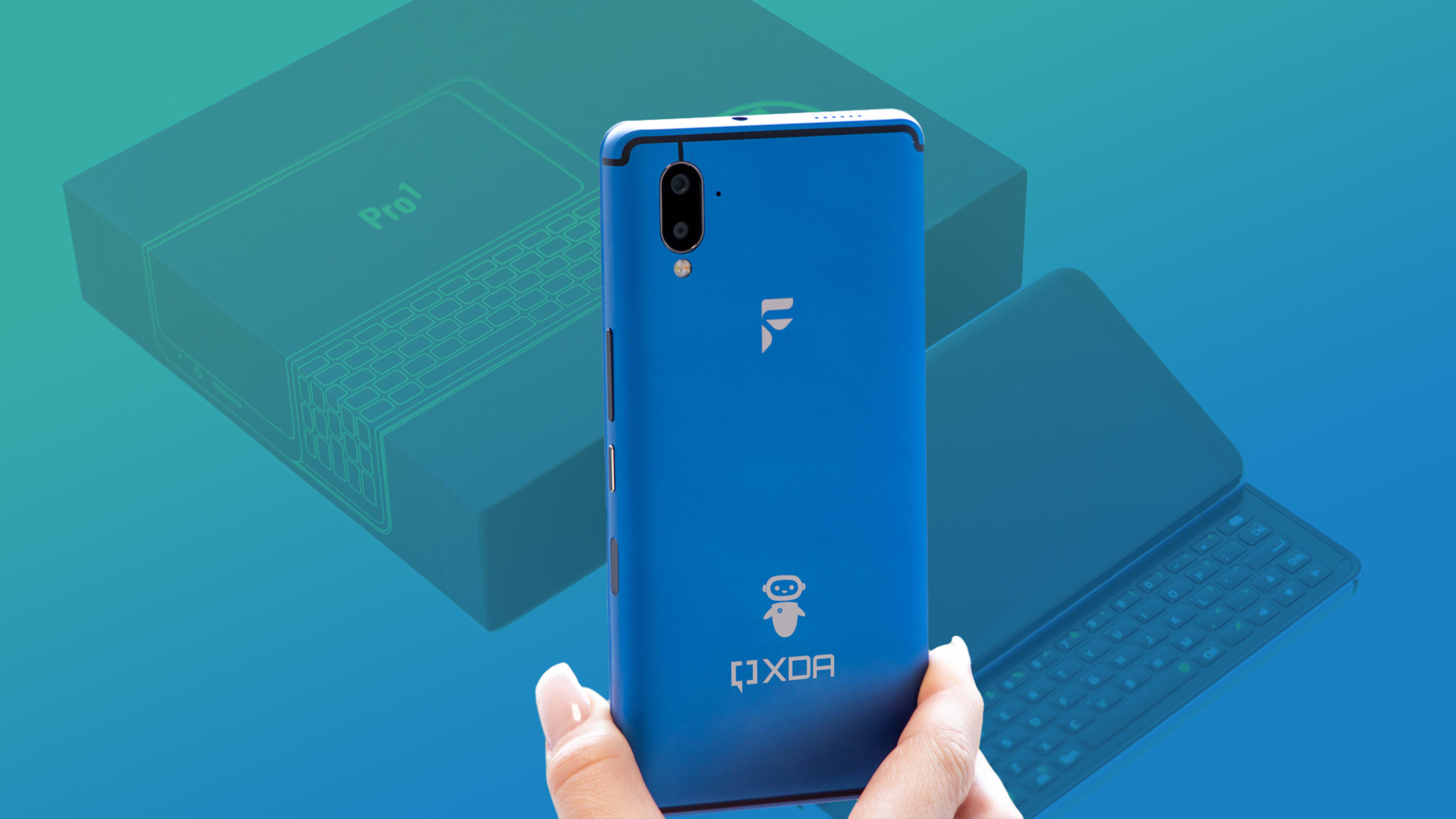Among the 15 million developers, hackers, and tinkerers who visit XDA Developers every month, there’s a recurring joke that the site should just build its own smartphone.
XDA hosts one of the largest online forums for Android enthusiasts, and it’s often the first stop for users who want to modify their phones in ways that the manufacturer never intended. Wouldn’t it be easier to just make a phone where the hacking was the point?
Now it’s not such a joke anymore. This week, XDA announced a partnership with a startup called F(x)tec, and together they’re collaborating on a new smartphone called the Pro1 X. It has a built-in physical keyboard, and it’s designed to boot into either Android or Ubuntu Linux. Nirave Gondhia, XDA’s chief content officer, says his editorial team provided input on the phone’s features and will also be promoting it on the site’s forums.
“We want to build something that’s designed for the enthusiast community,” Gondhia says. “We’re also really going to be driving a lot of the interest behind it through our community.”

The pocket PC
The Pro1 X is technically a variant of F(x)tec’s first phone, the Pro1, which launched in late 2019. While both phones have physical keyboards and similar specs, the new phone has twice the storage (128 GB) and more RAM (8 GB). Those tweaks will help accommodate an even bigger difference on the software side: The phone supports dual-booting, so users can load two operating systems on the same phone.
For Android, the Pro1 X will ship with LineageOS, a popular aftermarket firmware (or ROM) for those who like to tinker with their phones. It’s more customizable than the Android software that Google puts on its Pixel phones, but lacks the preloaded apps and superfluous features that manufacturers like Samsung install on their phones.
As Gondhia points out, the histories of Lineage and XDA Developers are deeply entwined. Developers who create experimental versions of Lineage—either with modified features or support for additional devices—often announce their work in XDA’s forums, and XDA’s editorial team frequently covers those developments in its news section. (Lineage was spun off from an earlier project called CyanogenMOD, which itself was a mainstay on the XDA forums prior to a failed attempt at commercializing the software.)
“There’s a lot of crossover between the XDA community and the Lineage community,” he says.

In exchange, Gondhia says that XDA will get a cut of any sales that the site helps generate, somewhat similar to an affiliate fee. He also pushed for a discount that XDA readers can get by clicking through from the site.
“We’ve been using our knowledge to help bring this product to life, and we will look at this as more than just a marketing exercise, more than just consulting,” he says. “This will be an actual partnership.”


“It’s the right time to put in the last jigsaw of my dream, to have a full pocketable and useful PC-like device,” Chen says.
A skeptical community
But while leaning on XDA for support sounds like a good idea, the community is also tech-savvy enough to sniff out the project’s shortcomings.
As a boutique phone maker, F(x)tec can’t afford to access the latest components that major players like Samsung and OnePlus are using. By the time it launches, the F(x)tec Pro1 X’s Snapdragon 835 processor will be more than three years old, and it’ll have the same lackluster camera as its predecessor. Yet at a starting price of $639 for XDA readers, it’s about the same price as those companies’ midrange to high-end phones.

“Seriously? You took an already outdated phone and slapped your name on it,” reads one comment.
“Everyone else is making larger screens and smaller bezels,” reads another. “It’s like you are 2-3 years behind everyone else.”
Gondhia and F(x)tec are taking those criticisms in stride. “As with any tech product, there are skeptics of course, and especially as it’s XDA’s first device, there’s a few more than normal,” Gondhia says. “But there’s been a lot of interest from the community and many developers have reached out as well.”
He also points out that the project has already met its crowdfunding goals, and that the feedback has given XDA food for thought on future plans, such as what other features its community might be looking for in a smartphone.
On that note, Gondhia doesn’t rule out making more phones in the future, though he says there are no active plans to do so: “I think this year has taught us all that you never know what to expect.”
Recognize your brand’s excellence by applying to this year’s Brands That Matter Awards before the early-rate deadline, May 3.
